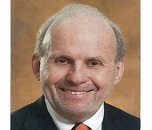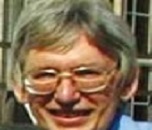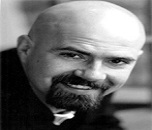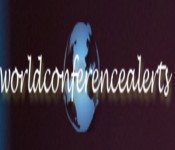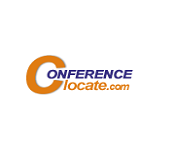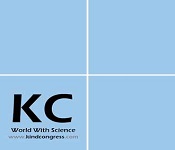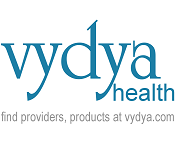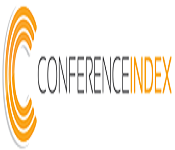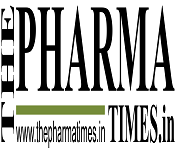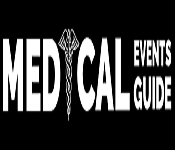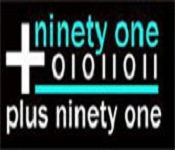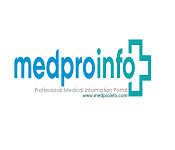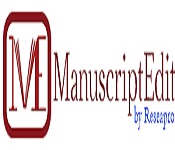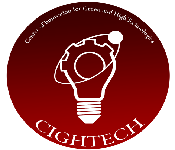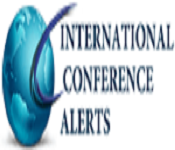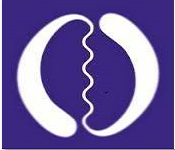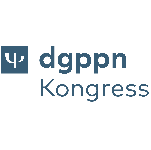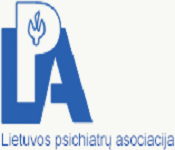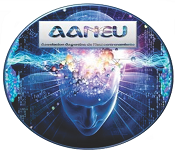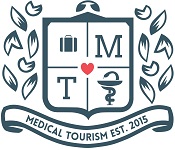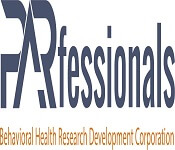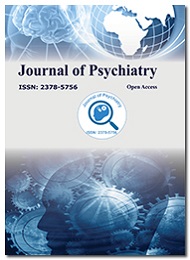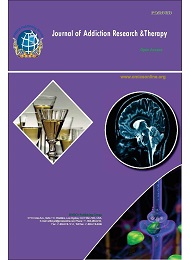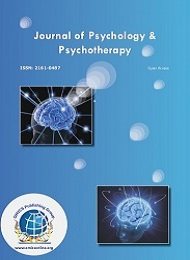Theme: Conceptualizing the new discoveries and advanced technologies for the treatment of addiction
Addiction 2019
ME Conferences invites all the participants from all over the world to attend 2nd International Conference on Addiction & Psychiatry which is going to be held during June 10-11, 2019 in Helsinki, Finland. The main theme of the conference is “Conceptualizing the new discoveries and advanced technologies for the treatment of addiction”.
Addiction 2019 Conference includes Oral talks, Poster presentations, and Keynote presentations, Workshop, Symposia and Exhibitions. The conference invites the academicians, Scientists, top Universities, Researchers, Health care professionals, Psychologists, Addiction Specialists, Industries, Students, Business peoples and Young researchers over the globe providing a better platform, where they can show their novel research and contributions in the field of Addiction and Psychiatry.
We assure that international Addiction conference 2019 will be an open access network for the peoples to trade thoughts and a typical vision for future research. Hence we are very pleased to invite you to attend Addiction 2019 to share and get novel research ideas.
Why to attend?
The international Addiction 2019 conference will focus on Addiction medicine, Addiction treatment and therapy, Psychiatry, Drug addiction, Alcohol addiction and Substance abuse disorders. Addiction 2019 invites you for plenary talks, Symposium, workshops, invited sessions, oral and poster sessions from various universities and associations. Participating in this conference will be a good opportunity to meet personalities in the field of Addiction & Psychiatry and to learn the latest technological advancements.
Target Audience:
Our organisation would be privileged to welcome
- Addiction researchers
- Psychiatrists
- Academicians
- Occupational Therapists
- Counsellors
- Private Practitioners
- Rehabilitation therapist
- Young Researchers and Students
- Pharmaceutical industries
- Psychology students and many more…
Track 1: Addiction Medicine
Addiction medicine is a therapeutic field that deals with the treatment of compulsion which reduces the fields of general well-being, psychology, social work, psychological wellness guiding, psychiatry, and internal medicine, among others. Related inside the strong points are the processes of detoxification, recovery, harm reduction, restriction based treatment, individual and gathering treatments, oversight of shelter, treatment of withdrawal-related side effects, intense intercession, long-haul treatments intended to lessen the probability of relapse. Most of the specialists those who have knowledge about family medicine provide treatment for disease condition generally associated with substance use such as hepatitis and HIV infection
Track 2: Addiction & Mental Health
Addiction is a brain disorder that is manifested by compulsive substance use despite harmful consequences. Despite the involvement of a number of psychosocial factors, one is a biological process which is induced by repeated exposure to an addictive stimulus is the core pathology that drives the development and maintenance of an addiction. It falls under two classes, substance abuse or drug addiction and behavioural addiction such as gambling addiction.
Mental health is a psychological state of someone who is functioning at a satisfactory level of emotional and behavioural modification. Persons with depression or other mental health issues are especially exposed against alcohol and drug use. Similarly, many people who are addicted to drugs are also diagnosed with other mental disorders, including anxiety and depression.
Track 3: Alcoholism and Drug Addiction
Alcohol addiction is characterized as the alcoholic liquid that is obtained from fermented grain or fruit. These liquids include beer, wine, and other hard liquors. Alcohol is an addictive drug. The more alcohol we drink the more our body comes to depend on it -thus, the nature of addiction. Excessive drinking of alcohol and chronic pancreatitis caused due to alcohol addiction, alcoholic polyneuropathy which damages the nerve. Delirium tremens (DTs) is caused by alcohol withdrawal after a period of heavy drinking and lead to severe mental and nervous system changes.
Drug addiction is a brain disease that is characterized by compulsive drug seeking, despite its harmful consequences. It causes changes in the normal activity of the nervous system damaging the nerve tissues, killing neurons and this leads to dis-regulation of neural system. Hence uncontrolled drug brings about the destruction of the brain. Most of the behavioural effects of drug addiction include Aggressiveness, Impulsiveness, paranoia, and loss of self- control.
Track 4: Addiction induced Brain Disorders
When a medicine client has dysfunctional actions before sedate use, it might be difficult to distinguish side effects that exist only because of the medication utilize itself. Most side effects, if the condition is inconsequential to drugs, will proceed after restraint from the medication. Drugs like cocaine, cannabis, and drugs can cause psychological well-being issues and, when combined with a prior emotional sickness, can compound the manifestations of such diseases. A few medications, when taken every now and again for drawn-out stretches of time, can really show as maniacal side effects demonstrative of schizophrenia and bipolar issue.
Track 5: Dual Diagnosis – Mental Illness Co-Happening With Substance Abuse
Dual Diagnosis is a condition when a person experiences both a substance misuse issue and another psychological well-being issue, for example, sorrow or a nervousness issue. Some of the time utilizes liquor or medications are because of mental issues. People who are managing Autism range issue are at high danger of substance manhandle. They may feel that substance misuse encourages them to cover their social incompetence however after some time it starts to cause significant issues throughout their life. Consideration Deficit Hyperactivity Disorder is likewise identify with dependence. Self-prescription hypothesis is broadly utilized for the treatment of co-happening issue.
Track 6: Psychiatry & Mental health
Addiction psychiatry focuses on the evaluation, diagnosis, and treatment of people who are suffering from one or more disorders and mental health issues related to addiction. Counselling and addiction treatment is very essential for such individuals. Due to latest advancement in technologies like Mobile health, now days it has become so easy for the people to get connected to health services and being updated with all the information. Rural and underserved communities often suffer from limited access to specialty treatment programs this can be overcome by Tele-mental health. Online Recovery programs provide the opportunity for alcohol and drug addiction treatment by trained experts via the Internet, in a way that is convenient and private.
Track 7: CNS and Addictive Disorders
Addictive disorders are caused by numerous elements, including hereditary weakness, ecological stressors, social weights, singular identity qualities and psychiatric issues. From a neurological point of view, addictive scatters emerge when a substance changes the way the client's cerebrum feels delight. Addictive substances change the cerebrum's capacity to send and get chemicals called neurotransmitters, which cause delight. The addictive substances can anticipate nerves in the mind called neurons from getting these joy chemicals, which means the medication client depends on the medication, as opposed to his or her common cerebrum chemicals, for sentiments of delight.
A few young people are more in danger of creating addictive scatters, incorporating youths with at least one of the accompanying conditions exhibit: 1) Children of substance abusers. 2) Adolescents who are casualties of physical, sexual or mental manhandle. 3) Adolescents with psychological well-being issues, particularly discouraged and self-destructive high schoolers. 4) Physically debilitated teenagers.
Track 8: Child & Adolescence Behavioral Therapy
Child and adolescence behavioral therapy denotes a number of procedures and methods used to help children and adolescents who are facing difficulties with their emotions or behaviour. When children experience emotions involve in behaviours that interfere with their happiness and ability to thrive at that time they need to consult a behavioural therapist. Children can experience various types of mental health disorders such as anxiety disorder, eating disorder, mood disorder, Schizophrenia, Autism spectrum disorder, etc.
Track 9: Marijuana and Opioid Dependence
Marijuana and opioid addiction are the most common type of drug addiction. According to Addiction biology of marijuana, marijuana use can overstimulation the endocannabinoid system which causes changes in the brain. In order to minimize its effects control measures are taken. Opioid dependence characterized by a compulsive use of opioids. Opioid treatment measures include various maintenance therapies like pharmacologic therapy, methadone maintenance therapy and these are the important topics of discussed in most of the substance dependence symposiums.
Track 10: Depression & Anxiety Disorders
Anxiety disorders are very common and it has been measured that more than one-fourth of the all-inclusive community will encounter a genuine nervousness problem among their lifetime. Anxiety can cause physical symptoms like pain, a pounding heart or stomach cramps, hot and cold flushes, feeling tight in breathing, shaking, etc. Individuals who have less emotionally stable or who have high anxiety levels tend to experience specific events more stress than others. However, research has found that patients with anxiety disorder do not have any differences in their actual physical response to stress (such as heart rate, blood pressure, or release of stress hormones) compared to people without anxiety.
Track 11: Addiction and Youth
The present days in many cities, addiction and youth is a major attempt to be examined. It focuses on the perceptions of the substance abusers, the causes for their addiction to drugs, smoking, and alcohol; the role of their families, friends and social environment and the law enforcing agencies in spreading this hazard. The study has taken 200 youth by following snowball sampling method. The youth of the affluent and the middle-classes are in abundance in the City. As they have access to material comforts, most of them try to lead the excessive and stylish life that subsequently offers them a wide variety of things to experiment with. In this process, they taste the thrill of cigarettes, alcohol, and drugs- just for a change but unfortunately, they are caught in the vicious circle of addiction to harmful substances and drug abuse. The most common reason for young people to be attracted towards drugs, alcohol, etc. is peer pressure.
Track 12: Medication-Assisted Treatment & Recovery
Medication-Assisted Treatment (MAT) is the utilization of prescriptions, in blend with advising and behavioural treatments, to give an "entire patient" way to deal with the treatment of substance use disorder. Research shows that a combination of medication and therapy can successfully treat these disorders, and for some people struggling with addiction, MAT can help sustain recovery. MAT is basically utilized for the treatment of addiction on opioids, for example, heroin and remedy pain relievers that contain sedatives. The prescribed medication operates to normalize brain chemistry, block the euphoric effects of alcohol and opioids, relieve physiological cravings, and normalize body functions without the negative effects of the abused drug. Prescriptions utilized as a part of MAT are endorsed by the Food and Drug Administration (FDA), and MAT projects are clinically determined and customized to address every patient's issues. Combining medications used in MAT with anxiety treatment medications can be fatal. Types of anxiety treatment medications include derivatives of Benzodiazepine, such as Xanax or valium.
Track 13: Behavioral and Multimedia addiction
Behavioral changes in human race occur due to various multimedia addictions which is becoming prominent in the daily life of the community. Among this, major is food addiction, caused due to binge eating habits and unscheduled meal sessions. Internet usage and gaming is most prominent in the young generation as they are always connected to the digital media sources to gain knowledge about the current activities all across the globe. Hence, living standards and habits changes to explore new trends in fashion world and lead them to be shopping addicts.
Track 14: Addiction Case Report Studies
Animal models has contributed immensely to our understanding of addiction mainly drug abuse, its consequences and prevention and treatment. Animal studies have yielded fundamental insights into why people abuse drugs and how drugs cause the compulsion and disordered thinking seen in addiction. It is a valuable research tools because they allow scientists to conduct experiments that they could never perform on humans. It has various effects on human race, results from animal studies should be extrapolated to humans with caution, and their value is incalculable. Case reports are also incorporated in addiction research.
Track 15: Addiction Rehabilitation & Recovery
Addiction treatment and rehabilitation includes various medications and treatments. Substance abuse treatment includes Motivational treatment in which we urge a patient to build up a negative perspective of their mishandle, alongside a want to change their conduct. It is one of the critical treatments incorporated into Rehabilitation house treatment approaches. Social conduct in dependence can be dealt with by behavioural treatment methodologies and medication incited habit treatment.
Track 16: Advanced Therapeutic Aspects for Addiction Recovery
Various advancements in addiction treatment techniques will help in providing quality care for people with unhealthy alcohol, tobacco, or other drug use. Among them Cognitive behavioural therapy is a form of psychotherapy designed to treat behavioural effects of substance abuse. The Behavioural Pharmacology Research is a substance abuse clinical research program encompassing both human laboratory research and outpatient treatment research. Neurorehabilitation and therapy offers complex medical process which aims to aid recovery from a nervous system injury due to addiction. 12 step recovery therapies involves an active engagement strategy designed to increase the likelihood of a substance abuser becoming affiliated with and actively involved in 12-step self-help groups, thereby promoting abstinence. It has long been an important part of the recovery process and the basis for many recovery programs.
Track 17: New Insight in Addiction Research
New advances in psychology and neuroscience have shed light on the changes that long-term use of alcohol and other drugs brings into the brain especially in brain reward system, to foster continued and chronic patterns of compulsive drug abuse. New research topics in addiction include Behavioural Pharmacology Research, Relationship between youth violence and substance abuse, effect of alcohol on cognitive functioning and cocaine vaccines and addiction epidemiological research. Behavioural Pharmacology Research implies broad-based substance abuse clinical research program encompassing both human laboratory research and outpatient treatment research. Cocaine abuse is an on-going and serious problem therefore vaccines against cocaine are being developed.
Scope and Importance:
Addiction 2019 aims to bring together leading academic scientists, researchers, and research scholars to exchange and share their experiences and research results about all aspects such as; Advances in Prevention, Treatment, and Recovery in addiction, psychiatry, and psychological disorders. It also provides the premier interdisciplinary forum for researchers, practitioners, and educators to present and discuss the most recent innovations, trends, and concerns, practical challenges encountered and the solutions adopted in the field of addiction and psychiatry.
One in four individual in the globe will be affected by mental disorders at some point in their lives. About 2.6 million people currently suffer from such conditions, placing mental disorders among the leading causes of ill health worldwide. Psychiatry is more vital to the common public than ever before, and with the rise of reported mental health and behavioral health issues, it might seem a bit confusing as to why personalities still tend to ignore the consequences of leaving these symptoms crude. The Centres for Disease Control and Prevention (CDC) has reported that the suicide rate of Americans aged 35-64 years has risen almost 29 per cent from 1999 to 2010. In Europe, the rate of employees reporting mental health issues to their employers has risen to two out of every five workers. Tremendous amounts of studies, an increase in global awareness and a shift in attitude towards treating and helping those with behavioral or mental health issues have likely brought more of these issues to light. So this conference will provide novel technologies in the development of addiction, psychiatry and psychological disorders.
Why Helsinki?
Helsinki, the capital of Finland is a compact city easily explored on foot. Design, architecture, culture and shopping are all great exploration angles and large park areas, forests, lakes, and the coastline with numerous islands sprinkled off it make certain there’s no shortage of natural presence. Needless to say, there’s something going on in Helsinki every day of the year. The latest European average drug-induced mortality rate among adults (aged 15-64 years) was 21.8 deaths per million. In Finland, this rate was 53.1 deaths per million in 2015. Addictions are a fairly big problem in Finland, and lots of treatment options are therefore available. The most suitable treatment option is selected on an individual basis. So it is a sensible objective for Addiction gatherings.
Target Audience:
- Addiction Specialists
- Psychiatrists
- Physicians
- Psychologists
- Addiction Researchers
- Healthcare professionals
- Professors
- Industrial Experts
- Neuropsychiatrists
- Mental health Nurses
- Lecturers and Students from Academia
- Psychiatry Scientists/Research Professor
- Physicists/Chemists
- Junior/Senior research fellows of Psychology Field/ Clinical Psychology Field/ Nursing Science/ Health Care
- Hospitals and Health Services
- Heads, Deans, and Professors of Psychiatry Departments
- Members of different Psychiatry associations
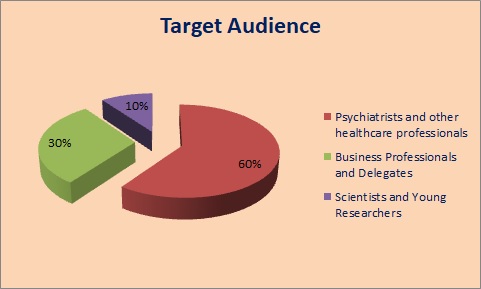
Major Addiction Associations and societies around the Globe:
- American Academy of Addiction Psychiatry
- American Society of Addiction Medicine
- Canadian Addiction Counsellors Certification Federation
- Georgia Addiction Counselors Association
- International Association of Addiction & Offender Counsellors
- International Society of Addiction Medicine
- National Association of Addiction Treatment Providers
- National Association of Alcohol and Drug Abuse Counsellors
- National Institute on Alcohol Abuse and Alcoholism
- National Institute on Drug Abuse
- New York Society of Addiction Medicine (NYSAM)
- State association of addiction services
Major Psychiatry Associations around the Globe
- American Psychiatric Association
- Illinois Psychiatric Society
- World Psychiatric Association
- Kentucky Psychiatric Association
- Psychiatric Associates of Iowa City
- Comprehensive Psychiatric Associates
- Associations First Ltd
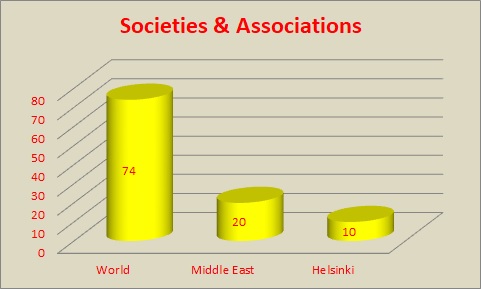
Related Societies:
- European Psychiatric Association
- American Psychological Association
- National Alliance on Mental illness
- Mental health Association in Maryland
- Society for Mental health Research
- American Academy of Child and Adolescent Psychiatry
- Australian Clinical Psychology Association
- American Society of Addiction Medicine
- National Institute on Alcohol Abuse and Alcoholism (NIAAA)
- National Rehabilitation Association (NRA)
- Research Society on Alcoholism, National Association of Addiction Treatment Providers
- The International Society of Physical and Rehabilitation Medicine (ISPRM)
- The Finnish Association for Mental Health
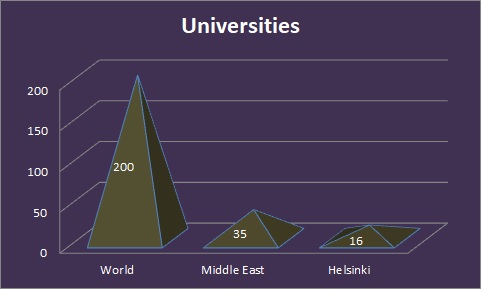
Market Research:
Addiction is a growing concern across the globe. According to the 2015 National Survey on Drug Use and Health (NSDUH), 15.1 million adults aged 18 year and above had alcohol use disorder, which included nearly 9.8 million men. About 1.3 million adults received treatment for AUD at a specialized facility in 2015. Over 16 million people in the U.S. are living with a diseases caused by smoking. According to CDC survey, tobacco use causes nearly 6 million deaths globally each year. Current trends indicate that tobacco use is likely to cause more than 8 million deaths annually by 2030.
Projections: Growth by 5-10 years
Addiction treatment is intended to help addicted individuals from compulsive seeking. Drug abuse and addiction treatments are provided in several different settings by using a number of behavioral and pharmacological approaches. The global addiction treatment market was valued at approximately USD 4.0 Billion in 2016 and is anticipated to expand at a CAGR of over 6.0% from 2017 to 2025 to reach value of approximately USD 7.0 Billion by 2025. Favourable reimbursements for smoking cessation therapy, growing abuse of prescription drugs, and rise in government initiatives to raise awareness about drug addiction are some factors driving the addiction treatment market from 2017 to 2025. Drug abuse treatment providers and manufacturers of treatment products are focusing on raising awareness among people and drug store owners about adverse effects of drug abuse and importance of abuse treatment to increase the customer pool. Moreover, companies are offering training for identification of potential drug abusers and alcohol abusers and use of drug abuse testing to law enforcement agencies. Awareness through television advertisements, information brochures, newspapers, and other media have proved to be effective in curbing substance abuse crisis.
Related Conferences: Addiction conferences 2019 | Psychiatry congress | Alcoholism meetings | Addictive disorder events | Helsinki
- World Depression Congress, March 18-19, 2019 Dubai, UAE
- 31st International Conference on Psychiatry and Mental Health, October 24-25, 2019 Helsinki, Finland
- 2nd International Conference on Bipolar Disorder: Depression and Psychiatry, November 11-12, 2019 Istanbul, Turkey
- 6th International Conference on Depression, Anxiety and Stress Management, June 10-11, 2019 Osaka, Japan
- 30th International Conference on Psychiatry and Mental Health, August 14-15, 2019 Tokyo, Japan
- 9th International Conference on Addictive Disorders and Alcoholism, June 17-18, 2019 Brisbane, Australia
- 7th World Congress on Depression and Anxiety, November 14-15, 2019 Brisbane, Australia
- 28th International Conference on Psychiatry & Psychology Health, May 06-07, 2019, The Netherlands
- 8th World Congress on Addictive Disorders & Addiction Therapy, May 09-10, 2019 London, UK
- 29th Euro Congress on Psychiatrists and Psychologists, June 10-11, 2019 Berlin, Germany
- 30th World Summit on Positive Psychology, Mindfulness, Psychotherapy and Philosophy, March 18-19, 2019 Chicago, Illinois, USA
- 6th World Congress on Mental Health, Psychiatry and Well-being, March 20-21, 2019, New York, USA
- 2nd World Summit on Psychiatry, Mental Health Nursing and Healthcare, July 24-25, 2019 Vancouver, Canada
- Global Conference on Addiction and Behavioural Health, August 22-24, 2019, London, UK
- International Medicine in Addiction Conference, March 1-3, 2019, Melbourne, Australia
- The ASAM 50th Annual Conference - Innovations in Addiction Medicine and Science, April 4-7, 2019, Orlando, Florida
- 2019 Australian and New Zealand Addiction Conference, May 13-15, 2019, Queensland, Australia
- National Conference on Addiction Disorders, August 15-18, 2019, Baltimore, Maryland
Conference Highlights
- Addiction Medicine
- Addiction & Mental Health
- Alcoholism and Drug Addiction
- Addiction induced Brain Disorders
- Dual Diagnosis - Mental Illness Co-happening with Substance Abuse
- Psychiatry & Mental Health
- CNS and Addictive Disorders
- Child & Adolescence Behavioral Therapy
- Depression & Anxiety Disorders
- Marijuana and Opioid Dependence
- Addiction and Youth
- Medication-Assisted Treatment and Recovery
- Behavioral & Multimedia Addiction
- Addiction Case Report Studies
- Addiction Rehabilitation & Recovery
- Advanced Therapeutic Aspects for Addiction Recovery
- New Insight in Addiction Research
To share your views and research, please click here to register for the Conference.
To Collaborate Scientific Professionals around the World
| Conference Date | June 10-11, 2019 | ||
| Sponsors & Exhibitors |
|
||
| Speaker Opportunity Closed | Day 1 | Day 2 | |
| Poster Opportunity Closed | Click Here to View | ||
Useful Links
Special Issues
All accepted abstracts will be published in respective Our International Journals.
- Journal of Addiction Research & Therapy
- journal of Psychology and Psychotherapy
- Journal of Psychiatry
Abstracts will be provided with Digital Object Identifier by




